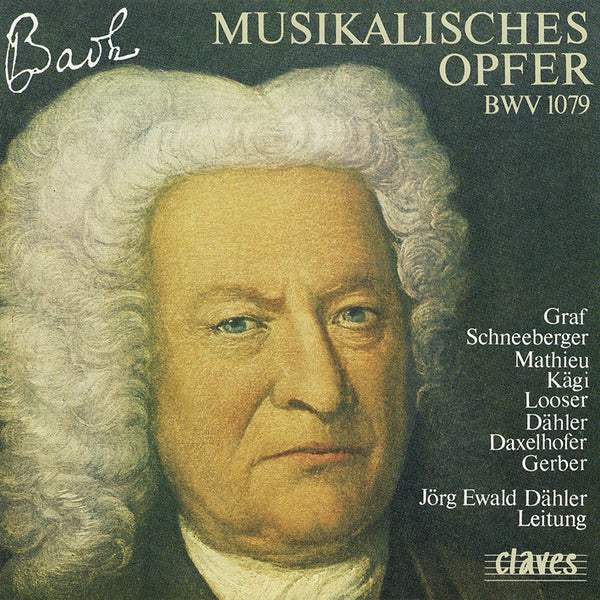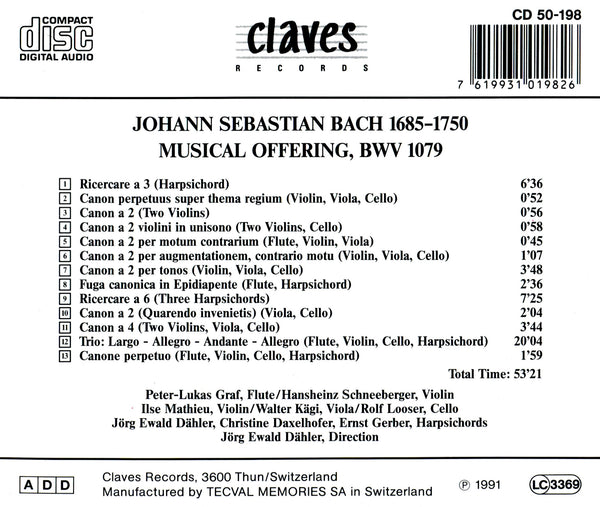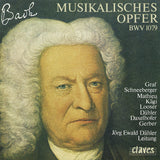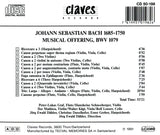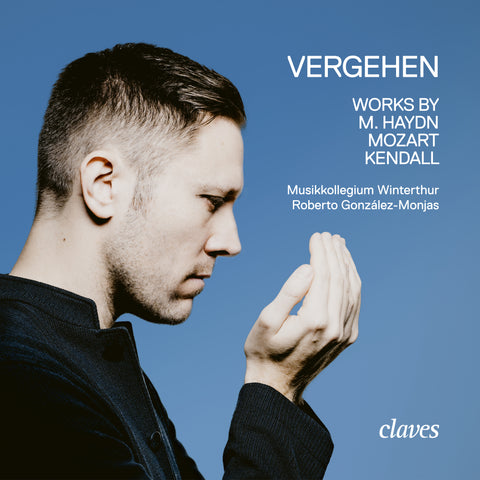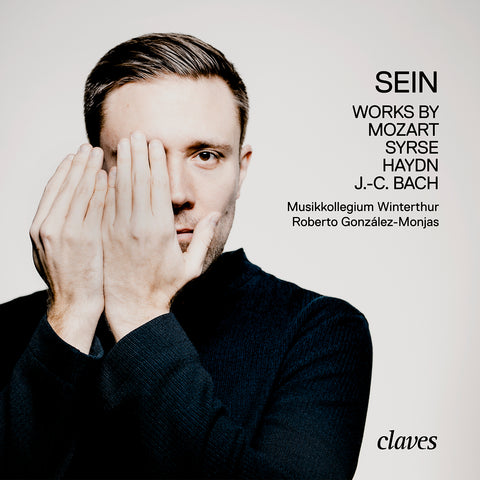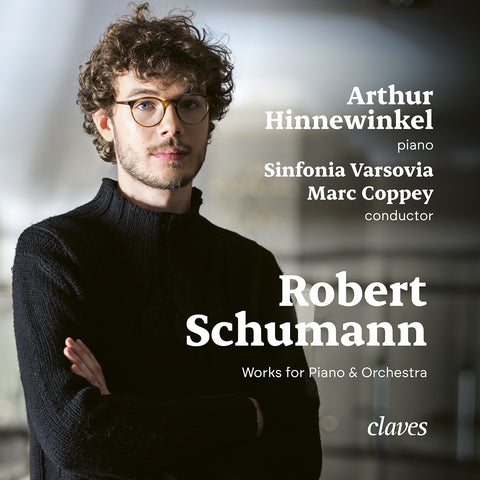(1991) Bach: Musical Offering BWV 1079
Catégorie(s): Musique ancienne
Instrument(s): Orgue
Compositeur principal: Johann Sebastian Bach
Nb CD(s): 1
N° de catalogue:
CD 0198
Sortie: 1991
EAN/UPC: 7619931019826
- UPC: 829410603065
Cet album est en repressage. Précommandez-le dès maintenant à un prix spécial.
CHF 18.50
Cet album n'est plus disponible en CD.
Cet album n'est pas encore sorti. Précommandez-le dès maintenant.
CHF 18.50
Cet album n'est plus disponible en CD.
CHF 18.50
TVA incluse pour la Suisse et l'UE
Frais de port offerts
Cet album n'est plus disponible en CD.
TVA incluse pour la Suisse et l'UE
Frais de port offerts
Cet album est en repressage. Précommandez-le dès maintenant à un prix spécial.
CHF 18.50
Cet album n'est plus disponible en CD.
This album has not been released yet.
Pre-order it at a special price now.
CHF 18.50
Cet album n'est plus disponible en CD.
CHF 18.50
Cet album n'est plus disponible en CD.
BACH: MUSICAL OFFERING BWV 1079
L'un des rares triomphes de J.S. Bach à la fin de sa vie fut sa visite en 1747 à la cour de Frédéric le Grand à Potsdam, où Carl Philipp Emanuel, le fils de Bach, était en service depuis 1740. Le roi Frédéric, lui-même flûtiste passionné, avait réuni à sa cour quelques-uns des meilleurs musiciens d'Europe et se produisait souvent lui-même lors des concerts quotidiens du soir. Le roi était apparemment au courant de la réputation de Bach, plus âgé, et exprima le souhait de rencontrer et d'entendre le célèbre virtuose. Lors de sa visite, Bach se voit proposer par le roi un thème sur lequel il doit improviser.
Bach estimait qu'il n'avait pas épuisé toutes les possibilités du thème "royal" lors de son improvisation à Potsdam. Peu après son retour à Leipzig, il utilisa donc ce thème comme base d'une collection de treize compositions pour ensemble de chambre, qu'il dédia au roi sous le nom d'Offrande musicale. Le plaisir de Bach pour les canons compliqués, les énigmes et les acrostiches s'exprime pleinement dans ces œuvres. Neuf des dix canons n'ont pas été écrits dans la partition complète, mais ont été notés avec des indices que les interprètes doivent interpréter et résoudre. Le titre de l'un d'entre eux, quaerendo invenietis, indique de manière provocante "cherchez et vous trouverez". De plus, bien que clairement destiné à l'exécution instrumentale, Bach n'avait spécifié l'instrumentation que pour quelques-uns des mouvements. Le thème est employé et varié distinctement dans chacun des mouvements.
Mark Manion
Traduit de l'Anglais avec www.DeepL.com/Translator (version gratuite)
(1991) Bach: Musical Offering BWV 1079 - CD 0198
L'un des rares triomphes de J.S. Bach à la fin de sa vie fut sa visite en 1747 à la cour de Frédéric le Grand à Potsdam, où Carl Philipp Emanuel, le fils de Bach, était en service depuis 1740. Le roi Frédéric, lui-même flûtiste passionné, avait réuni à sa cour quelques-uns des meilleurs musiciens d'Europe et se produisait souvent lui-même lors des concerts quotidiens du soir. Le roi était apparemment au courant de la réputation de Bach, plus âgé, et exprima le souhait de rencontrer et d'entendre le célèbre virtuose. Lors de sa visite, Bach se voit proposer par le roi un thème sur lequel il doit improviser.
Bach estimait qu'il n'avait pas épuisé toutes les possibilités du thème "royal" lors de son improvisation à Potsdam. Peu après son retour à Leipzig, il utilisa donc ce thème comme base d'une collection de treize compositions pour ensemble de chambre, qu'il dédia au roi sous le nom d'Offrande musicale. Le plaisir de Bach pour les canons compliqués, les énigmes et les acrostiches s'exprime pleinement dans ces œuvres. Neuf des dix canons n'ont pas été écrits dans la partition complète, mais ont été notés avec des indices que les interprètes doivent interpréter et résoudre. Le titre de l'un d'entre eux, quaerendo invenietis, indique de manière provocante "cherchez et vous trouverez". De plus, bien que clairement destiné à l'exécution instrumentale, Bach n'avait spécifié l'instrumentation que pour quelques-uns des mouvements. Le thème est employé et varié distinctement dans chacun des mouvements.
Mark Manion
Traduit de l'Anglais avec www.DeepL.com/Translator (version gratuite)
Return to the album | Composer(s): Johann Sebastian Bach | Main Artist: Peter-Lukas Graf















